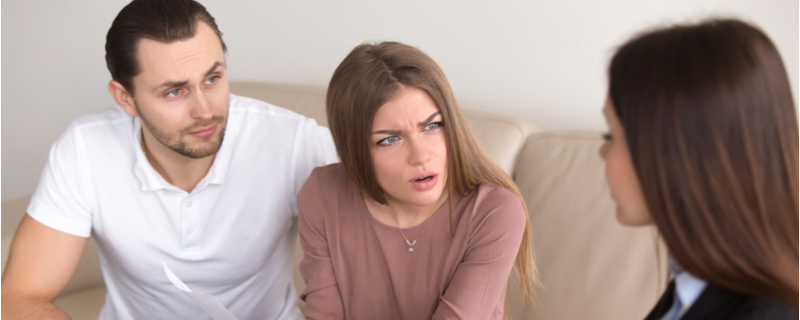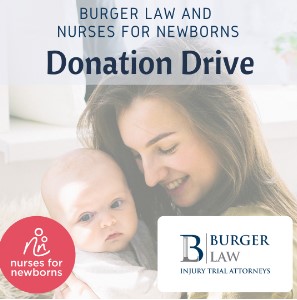Free Consultation
(314) 500-HURT100+ years of combined experience and over $200 million won for our clients in Missouri and Illinois. Contact a personal injury lawyer near you.
Free Consultation
(314) 500-HURT
In our recent April 2022 CLE we discussed in detail what experienced litigators should never say in closing. When it
comes to closing arguments the rules on what you can’t say are designed to keep out unfair, but really effective
arguments. So, because of this its imperative to understand exactly what you should and should not say in closing
arguments.
40825[/video-slider]
The trial technique of appealing to the jury to follow a mathematical formula in measuring damages for pain and
suffering is unfair. Faught v. Washam, 329 S.W.2d 588, 601- 04 (Mo. 1959).
See also Huxoll v. Nickell, 205 Kan. 718, 726-27, 473 P.2d 90, 96-97 (1970).
In Illinois, it is also an error for counsel to suggest to the jury that it calculate damages for pain and suffering
based on a mathematical formula by which a specific sum is awarded per day or other fixed unit of time. Caley v. Manicke, 24 Ill. 2d 390, 182 N.E.2d 206 (1962).
The trial court is accorded broad discretion in ruling on the propriety of closing arguments and will suffer reversal
only for an abuse of discretion. Simpson v. Johnson’s Amoco Food Shop, Inc., 36 S.W.3d 775, 777
(Mo. App. 2001). However, when counsel for one side undertakes to comment on the failure of his opponent to
call a witness, review has been stricter. Simpson, 36 S.W.3d at 777.
The failure of a party to call a witness who has knowledge of facts and circumstances “vital to the case” generally
raises the presumption that the testimony will be unfavorable to the party failing to offer the testimony. Simpson,
36 S.W.3d at 777-78; see generally, 1 Ill. Non-Pattern Jury Instr. Civil § 5.01.
Where such a witness is not equally available to both parties, it is prejudicial error for the trial court to prevent
the party to whom the witness is not equally available from requesting the jury to draw an adverse inference from
the failure of the opposing party to produce the witness. Simpson, 36 S.W.3d 778. It is improper, however, for a
party to argue the negative inference resulting from his opponent’s failure to produce such a witness if the witness
is equally available to both parties. Elliott v. Koch, 558 N.E.2d 493 (3d
Dist. 1990).
“Equal availability” depends on several factors including: (1) one party’s superior knowledge of the existence of the
witness; (2) the nature of the testimony that the witness would be expected to give in light of his previous
statements or declarations, if any, about the facts of the case; and (3) the relationship of the witness to the
party. Simpson, 36 S.W.3d 778.
Reading a statute to the jury is improper and, if in reading the statute, counsel misstates the law or misleads the
jury, it is reversible error. Lasky v. Union Elec. Co., 936 S.W.3d 797, 802 (Mo.
App. 1997).
While as a general rule, counsel is prohibited from instructing the jury on the law, the rule not only does not
prohibit counsel from discussing the law as set forth in the court’s instructions, but encourages it, as long as the
discussion states the law fairly and accurately. Rice v. Bol, 116 S.W.3d 599,612 (Mo. App. 2003);
See also Tamplin v. Star Lumber. & Supply Co., 251 Kan. 300,311, 836
P.2d 1102, 1110 (1992).
In Illinois, “Although it is the function of the trial court to instruct the jury as to the law, attorneys can, and
necessarily must, state what they believe the law to be and base their factual arguments on that interpretation.
Nevertheless, an attorney may not mislead the jury with such remarks.” Stennis v. Rekkas, 233 Ill. App. 3d 813, 829, 599 N.E.2d 1059, 1069 (1992).
Founder | Injury Attorney
Gary Burger has dedicated his career to standing up against bullies. The founder and principal attorney of Burger Law | St. Louis Personal Injury Lawyer has helped hundreds of Missouri and Illinois individuals and families recover th …
Years of experience: 30 years
Location: St. Louis, MO

Similar Blog Posts

What Is Bad Faith Failure To Settle? It's when and insurance company will not reasonably settle a claim and damages its insured, or customer, in Missouri. Bad Faith is "the int... read more.

I've said it before, and I'll say it again. Our clients are a crucial part of our success. We've got a ton of great clients, and we're so grateful for them. As a way of sho... read more.

This month, Burger Law is partnering with Nurses for Newborns for a Donation Drive. We're collecting baby and food items for them. Here's the list of what they need. Here’s... read more.

This page has been written, edited, and reviewed by a team of legal writers following our comprehensive editorial guidelines. This page was approved by Founding Partner, Gary Burger who has more than 30 years of legal experience as a practicing personal injury trial attorney. Gary’s robust legal knowledge is recognized by his peers as demonstrated by his industry awards and frequent Continuing Legal Education (CLE) lectures.
NO FEES UNTIL WE WIN YOUR CASE
We offer free consultations and are available 24/7 to take your call. Live chat, text, and virtual meetings are available.
or call us at